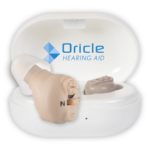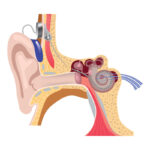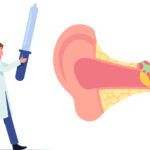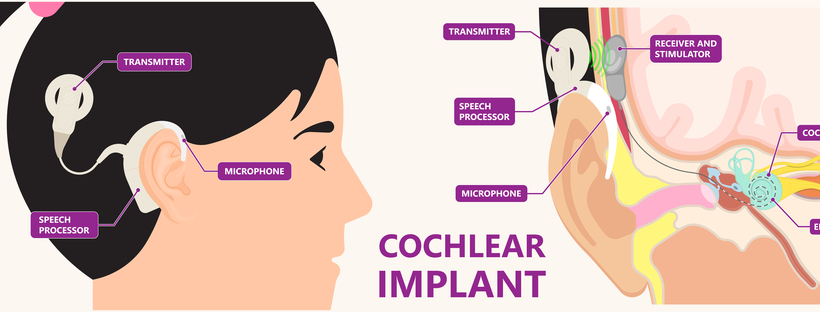Comprehensive Guide to Cochlear Implants for Auditory Impairment
Cochlear implants have become a revolutionary treatment option for individuals with auditory impairments. This comprehensive guide will provide you with all the information you need to know about cochlear implants, from understanding auditory impairments to the benefits and risks of the procedure. By the end of this post, you will have a better understanding of whether cochlear implants are the right solution for you or your loved one.
What is Auditory Impairment?

Auditory impairment, frequently referred to as hearing loss, is a widespread condition that impacts the lives of millions of individuals across the globe. This prevalent health issue can stem from a variety of factors, including the natural aging process, genetic predispositions, prolonged or sudden exposure to loud noises, ear infections, head trauma, and the side effects of certain medications such as ototoxic drugs. Hearing loss is not a one-size-fits-all condition; it can manifest in different ways and at varying degrees of severity. As a result, it is classified into three primary categories: conductive, sensorineural, and mixed hearing loss.
Conductive hearing loss occurs when there is a problem in the outer or middle ear that prevents sound from being conducted efficiently to the inner ear. This type of hearing loss can be caused by factors such as earwax buildup, fluid in the middle ear, or abnormalities in the ear's structure. In many cases, conductive hearing loss can be treated through medical intervention or surgery, and hearing can be significantly improved or even restored.
Sensorineural hearing loss, on the other hand, is a result of damage to the inner ear or the auditory nerve pathways that relay sound information to the brain. This damage is often irreversible and can be caused by factors such as age-related degeneration, noise-induced trauma, genetic factors, or infections like meningitis or measles. While sensorineural hearing loss is typically permanent, advancements in hearing aid technology and cochlear implants can help improve the affected individual's hearing capabilities and quality of life.
Mixed hearing loss, as the name suggests, is a combination of both conductive and sensorineural hearing loss. This means that a person experiencing mixed hearing loss has problems in both the outer or middle ear and the inner ear or auditory nerve pathways. Treatment for mixed hearing loss may involve addressing the conductive component with medical intervention or surgery, while also utilizing hearing aids or cochlear implants to manage the sensorineural component.
Understanding Cochlear Implants
Cochlear implants are sophisticated medical devices specifically engineered to offer a sense of sound to individuals experiencing severe to profound sensorineural hearing loss. Developed through years of research and technological advancements, these implants have become a groundbreaking solution for those who struggle with hearing impairment.
1. How Do Cochlear Implants Work?
Unlike conventional hearing aids that simply amplify sounds, cochlear implants work by bypassing the damaged portions of the inner ear and directly stimulating the auditory nerve, allowing for a more comprehensive hearing experience.
These state-of-the-art devices consist of two primary components: an external sound processor that captures and processes sound from the environment, and an internal implant surgically placed beneath the skin, which receives the processed sound signals and converts them into electrical impulses.
These impulses are then sent directly to the auditory nerve, which transmits the information to the brain, allowing the individual to perceive and interpret the sound.
2. Who Can Benefit from Cochlear Implants?
Cochlear implants are suitable for individuals who:
- Have severe to profound sensorineural hearing loss in both ears
- Receive little or no benefit from hearing aids
- Have no medical contraindications for surgery

The Cochlear Implant Process
1. Evaluation
Before the implantation process, a thorough evaluation is conducted by a team of professionals, including audiologists, otolaryngologists, and speech therapists. This evaluation determines the patient's eligibility for cochlear implants and sets expectations for outcomes.
2. Surgery
The cochlear implant surgery is performed under general anesthesia and typically lasts between 2 to 4 hours. The surgeon makes a small incision behind the ear and inserts the internal implant, which is then connected to an external sound processor.
3. Post-Operative Care and Rehabilitation
After the surgery, the patient will need some time to recover before the external sound processor is activated. Once activated, the patient will work with an audiologist and speech therapist to adjust the device and learn to interpret the new sounds.
Benefits of Cochlear Implants

Cochlear implants can significantly improve the quality of life for individuals with severe to profound hearing loss by:
- Restoring the perception of sound
- Improving speech understanding and communication
- Enhancing social interactions and emotional well-being
- Facilitating the development of speech and language in children
- Risks and Complications
As with any surgery, there are risks associated with cochlear implantation, such as infection, bleeding, and damage to the facial nerve. However, these complications are rare and can usually be managed by the healthcare team. Some individuals may also experience dissatisfaction with the device or difficulty adjusting to the new sounds.
Comparing Cochlear Implants to Hearing Aids
Cochlear implants and hearing aids both serve to improve hearing, but they function differently and cater to different levels of hearing loss:
- Hearing aids amplify sounds, making them more accessible for individuals with mild to severe hearing loss. They work best when the hair cells in the inner ear are still functioning.
- Cochlear implants directly stimulate the auditory nerve, bypassing damaged hair cells. They are designed for individuals with severe to profound hearing loss who receive little to no benefit from hearing aids.
Financial Considerations
Cochlear implantation can be a significant financial investment, as the cost includes not only the device itself but also the surgery, post-operative care, and rehabilitation. However, many insurance plans and government programs cover cochlear implants, making them more accessible to those in need.
Frequently Asked Questions
Q: Are cochlear implants permanent?
A: The internal implant is meant to be permanent. However, the external sound processor can be upgraded or replaced as technology advances.
Q: Can cochlear implants restore normal hearing?
A: While cochlear implants cannot restore normal hearing, they can significantly improve the perception of sound and speech understanding for individuals with severe to profound hearing loss.
Q: Are cochlear implants suitable for children?
A: Yes, cochlear implants can be beneficial for children as young as 12 months old with severe to profound hearing loss. Early implantation is crucial for the development of speech and language skills.
Conclusion
Cochlear implants have revolutionized the way countless individuals with auditory impairments experience the world around them, providing them with the opportunity to regain a sense of sound and vastly improve their quality of life.
As you explore the world of cochlear implants, it's crucial to delve deeply into the entire process, including evaluations, the surgical procedure, and the post-operative care and rehabilitation. By doing so, you can gain a comprehensive understanding of the numerous benefits that cochlear implants offer, such as enhanced communication, increased social interaction, and overall emotional well-being.
At the same time, it's important to be aware of the potential risks and complications, which, although rare, may still occur during or after the surgery. Finally, considering the financial aspects of cochlear implantation is essential, as the costs include the device itself, surgical expenses, and ongoing care and support.
With a thorough understanding of these factors, you will be well-equipped to make an informed decision about whether this groundbreaking technology is the right solution for you or your loved one, ultimately paving the way for a more fulfilling and connected life.
Sources
- National Institute on Deafness and Other Communication Disorders (NIDCD). (2021). Cochlear Implants. Retrieved from https://www.nidcd.nih.gov/health/cochlear-implants
- American Speech-Language-Hearing Association (ASHA). (n.d.). Cochlear Implants. Retrieved from https://www.asha.org/public/hearing/cochlear-implant/







